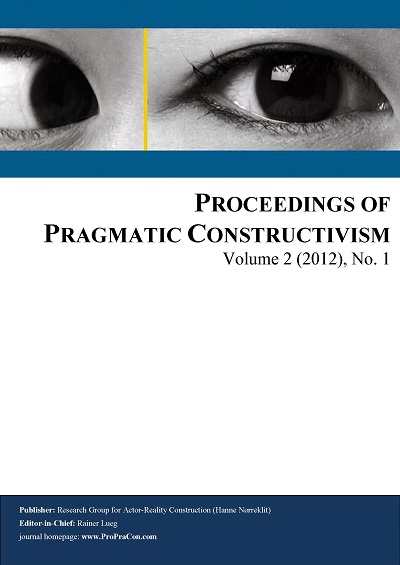The rise of the balanced scorecard! – Relevance regained?
DOI:
https://doi.org/10.7146/propracon.v2i1.16673Keywords:
Balanced Scorecard, construct causality, myth, scholarly speech genreAbstract
This paper investigates whether the balanced score card has contributed to regaining practice relevance of management accounting research. The paper subscribes to Kaplan’s claim that accounting research should increase its relevance by directing more attention to accounting in contemporary business practice and strive to develop improvements for this practice. We also believe that Kaplan is fundamentally right when he states that even though efforts have been made to overcome the problem, the issue remains important for management accounting research. However, the paper is wondering why was the relevance gap not somehow covered by the widespread interest in and use of BSC?
The increased demand for research that is relevant to managerial practice can be seen as an example of the traditional change of a profession from being a craft to becoming a scientific practice; a transition that has characterized all professions in modern society. Accordingly, the problem of relevance is not considered to be a limited technical problem, but it is seen as a general problem of incompatibility between the speech genres of managerial practice and scientific research. Therefore, we address the speech genre in use in the major works on BSC.
Our analysis uncovers that the BSC is defined in a way that can provide management with some kind of generally overarching model, but the model lacks realistic scientific characteristics and favors some strong characteristics of myth. The extreme focus on cause-and-effect statements in BSC that makes everybody involved draw arrows in all directions seems especially arbitrary or mythical. The mythical nature of the BSC speech genre, on the one hand, may be handy to use in practice because it generates hypothetical managerial imperatives, but on the other hand it is incompatible with research and thereby it actually increases the relevance gap. Our analysis consequently points towards methodological issues that are to be solved especially with respect to the usage of cause-and-effect statements if research is to become more relevant and replace the use of somewhat unrealistic myth. To overcome this problem and regain research relevance the article recommends a more scholarly speech genre that pays more attention to various usages of inferential statements and specifically a pragmatic constructivist perspective for analyzing construct causalities.Downloads
Published
How to Cite
Issue
Section
License
Previous and future use of the work
ProPraCon assumes the non-exclusive rights to publish and store the work of its authors, once they have consented to a publication. Since the rights to publish are non-exclusive, authors are free to re-use their work, e.g., to publish it in other media (as ProPraCon aims at publishing proceedings). Hence, it is explicitly allowed that works submitted to ProPraCon may be published in a somehow similar form in other media. Yet, submitting authors warrant that the work is not an infringement of any existing copyright and will indemnify the publisher against any breach of such warranty.
Permissions
By submitting work to ProPraCon, the authors declare that they have permission to use any content that has not been created by them. Specifically, when using tables, figures or excerpts of more than 400 words, it is expected that the authors…
- …obtain written permission of copyright for the use in print and electronic formats of any of their text, illustrations, graphics, or other material, in their work. This includes any minor adaptations.
- …acknowledge the original source in captions and in the reference list.





